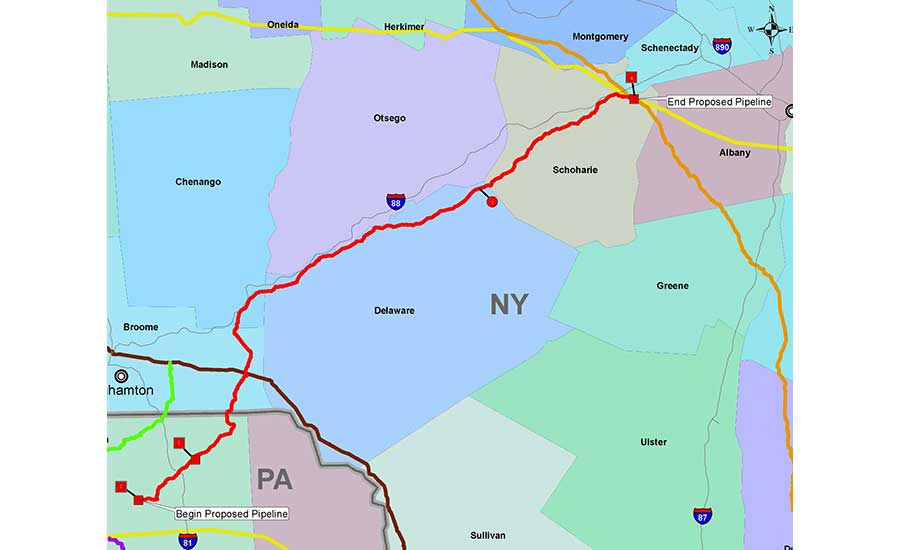The backers of a proposed pipeline to transport natural gas from Pennsylvania’s Marcellus shale region through New York state say they are “steadfastly committed” to building the pipeline, despite the April 22 decision by the New York State Dept. of Environmental Conservation to deny a permit for the project.
The NYSDEC denied a Section 401 Water Quality certification, a necessary step to enable the U.S. Army Corps of Engineers to issue a Clean Water Act permit for the 125-mile pipeline project to move forward.
Officials at the NYSDEC contend that the pipeline’s developers, which include Cabot Oil and Gas and Williams Cos., did not provide adequate evidence that they would protect water-quality standards. Constitution Pipeline Co. says the decision was politically motivated. A company spokesman says Constitution worked closely with NYSDEC staff for more than three years to ensure that water-quality standards were met before, during and after construction and that the Federal Energy Regulatory Commission already had certified the route.
In an April 22 letter explaining the decision, DEC’s John Ferguson wrote that the project would have had an impact on 251 streams. “Although the Department repeatedly asked Constitution to analyze alternative routes that could have avoided or minimized impacts to an extensive group of water resources … Constitution failed to substantively address these concerns,” he wrote. As a result, the DEC was limited in its ability to assess the impacts and certify that water-quality standards would not be adversely affected, he said.
Constitution officials say the company had not been told that more information was needed. “Contrary to NYDEC statements, the company was not informed of any outstanding issues that it had not agreed to address as a condition of the permit,” the officials said in a statement. Chris Stockton, a project spokesman, adds, “We are going to challenge the legality and appropriateness of the [NYSDEC] decision.”
The decision is the latest in a series of setbacks for major energy infrastructure projects. In March, FERC denied a permit for the Jordan Cove liquefied-natural-gas export terminal and Pacific Connector Gas Pipeline in the Pacific Northwest. That project’s backers say they will file a request for a rehearing of the decision.
Roger Downs, conservation director of the Sierra Club’s Atlantic chapter, said the rejection of the Constitution pipeline represents “a turning of the tide, where states across the nation that have been pressured into accepting harmful gas infrastructure projects by FERC may now feel emboldened to push back.”
But David Mallino, legislative and political director for the Laborers International Union of North America, says the projects would have provided jobs to workers and a boost to local economies. He notes that opposition to energy infrastructure is often “irrational.” He says, “You can’t get to the numbers that New York needs to get to [under the Clean Power Plan] without natural gas,” he says.


